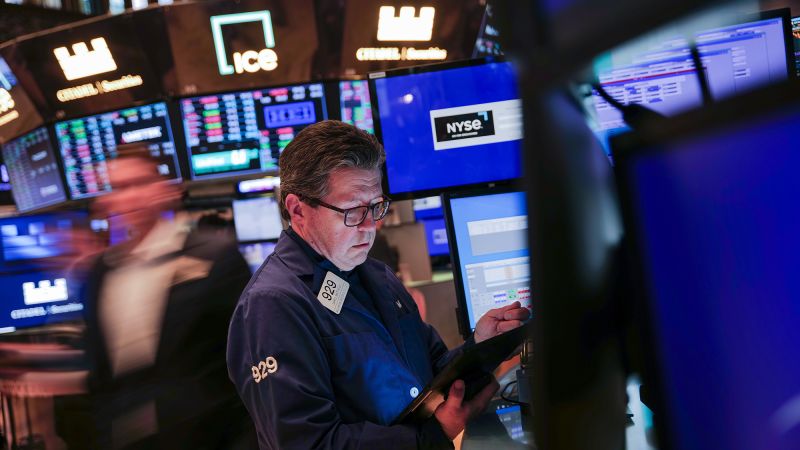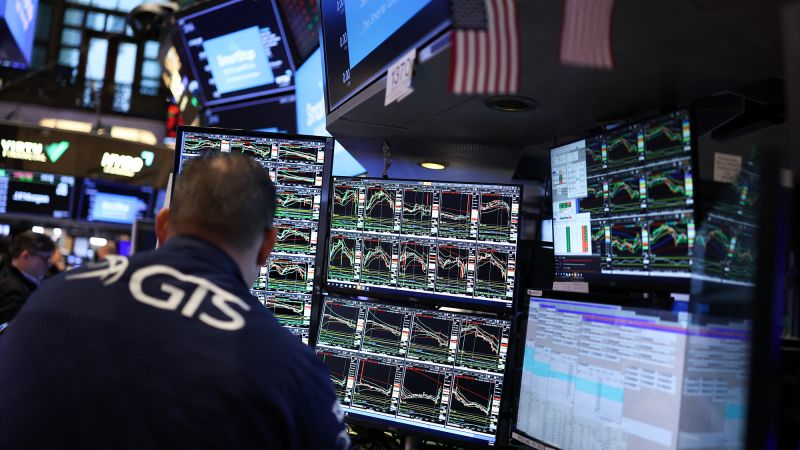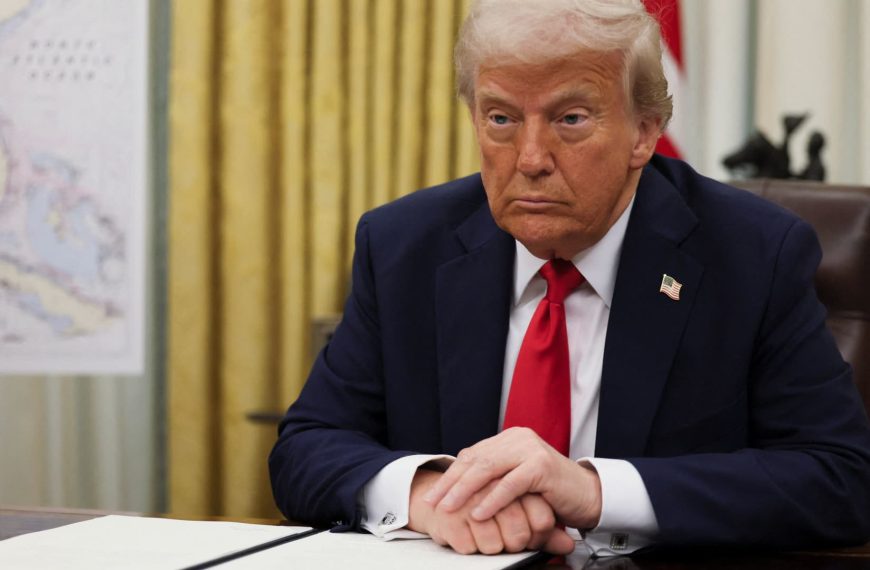U.S. Stock Market Faces Major Downturn Amid Economic Concerns
On a turbulent Monday for Wall Street, U.S. stocks experienced a significant drop, while Bitcoin also stumbled, leading to heightened anxiety among investors. The market selloff was largely attributed to worries surrounding President Donald Trump‘s economic policies, which sent all three major indexes spiraling downwards. The uncertainty surrounding potential tariffs and their impact on the economy prompted a widespread retreat from equities.
Major Indexes Experience Notable Losses
The trading day commenced with all major indexes opening sharply lower, continuing a downward trend that persisted throughout the session. Despite a brief attempt to recover in the afternoon, the stocks ultimately closed in the red:
- Dow Jones Industrial Average: Closed down 890 points, or 2.08%.
- S&P 500: Plummeted by 2.7%.
- Nasdaq Composite: Experienced a sharp decline of 4%.
This marked the most challenging day of the year for both the Dow and S&P 500, while the Nasdaq recorded its steepest one-day fall since September 2022. The selloff contributed to a dismal month for the markets, erasing gains made since the presidential election in November.
Investor Anxiety Over Tariffs
The market’s decline was fueled by concerns about President Trump’s tariff policies. During a recent interview, Trump remarked on the economy entering a “period of transition,” leaving investors wary about the possibility of a recession. When pressed on whether he anticipated a recession this year, he stated, "I hate to predict things like that. There is a period of transition because what we’re doing is very big."
The tech sector was particularly hard-hit, dragging the S&P 500 down by over 8.6% from its record high set in mid-February. Notably, the "Magnificent Seven" tech stocks—Alphabet (GOOG), Amazon (AMZN), Apple (AAPL), Meta (META), Microsoft (MSFT), Nvidia (NVDA), and Tesla (TSLA)—all saw declines in value.
Market Experts Weigh In
Anthony Saglimbene, chief market strategist at Ameriprise, noted that Trump’s comments regarding economic uncertainty exacerbated existing investor fears. Meanwhile, the White House defended the administration’s economic strategies, asserting that Trump’s policies would spark "historic" growth in a potential second term.
Kush Desai, a White House spokesperson, stated, "Since President Trump was elected, industry leaders have responded to his America First agenda with trillions in investment commitments, creating thousands of jobs."
Tesla’s Stock Takes a Hit
Tesla’s stock suffered a severe blow, closing down 15.4% on Monday. Following the U.S. presidential election, Tesla shares had surged, but they are now down nearly 45% for the year, effectively erasing all gains from the post-election period. This decline is attributed to declining sales in Europe and controversies surrounding CEO Elon Musk‘s prominent role in the Trump administration.
Other notable tech stocks like Nvidia and Palantir (PLTR) also faced losses of 5% and 10%, respectively. Gina Bolvin, president of Bolvin Wealth Management Group, commented, "When stocks overextend on the upside, they overextend on the downside."
Fear Grips Investors
The volatility in the market is reflected in the VIX, Wall Street’s fear index, which surged to its highest level of the year. Current sentiment has been characterized by "extreme fear," a factor that has influenced market behavior in recent weeks.
The uncertainty surrounding Trump’s fluctuating tariff policies has left investors skeptical. Ed Yardeni, president of Yardeni Research, remarked, "The stock market is losing its confidence in the Trump 2.0 policies." Recent threats of increased tariffs on imports from Canada and Mexico, along with hikes on Chinese imports, have only added to the market’s turbulence.
Looking Ahead
As concerns about economic stability grow, investors are now shifting their focus to upcoming inflation data expected later this week. The yield on the 10-year U.S. Treasury has dropped to 4.225%, indicating a flight to safety as apprehensions about economic growth and uncertainty loom.
In conclusion, the current market climate highlights the fragility of investor confidence in the face of potential economic shifts. How long this cautious sentiment prevails will depend on the administration’s ability to manage the ongoing trade tensions and provide clarity.
For more insights on market trends and economic forecasts, check out our latest articles on market analysis and economic policies.











